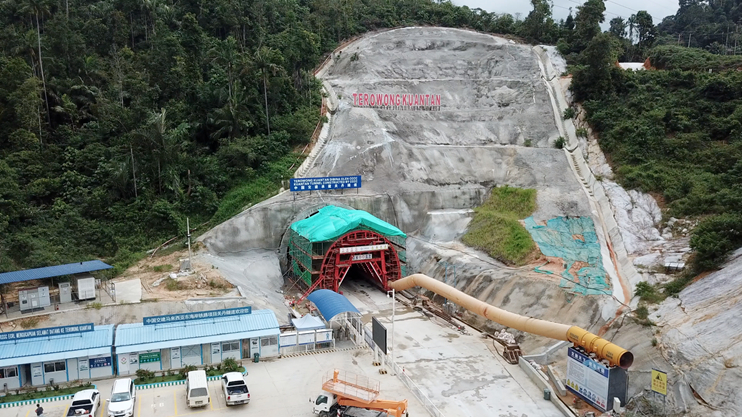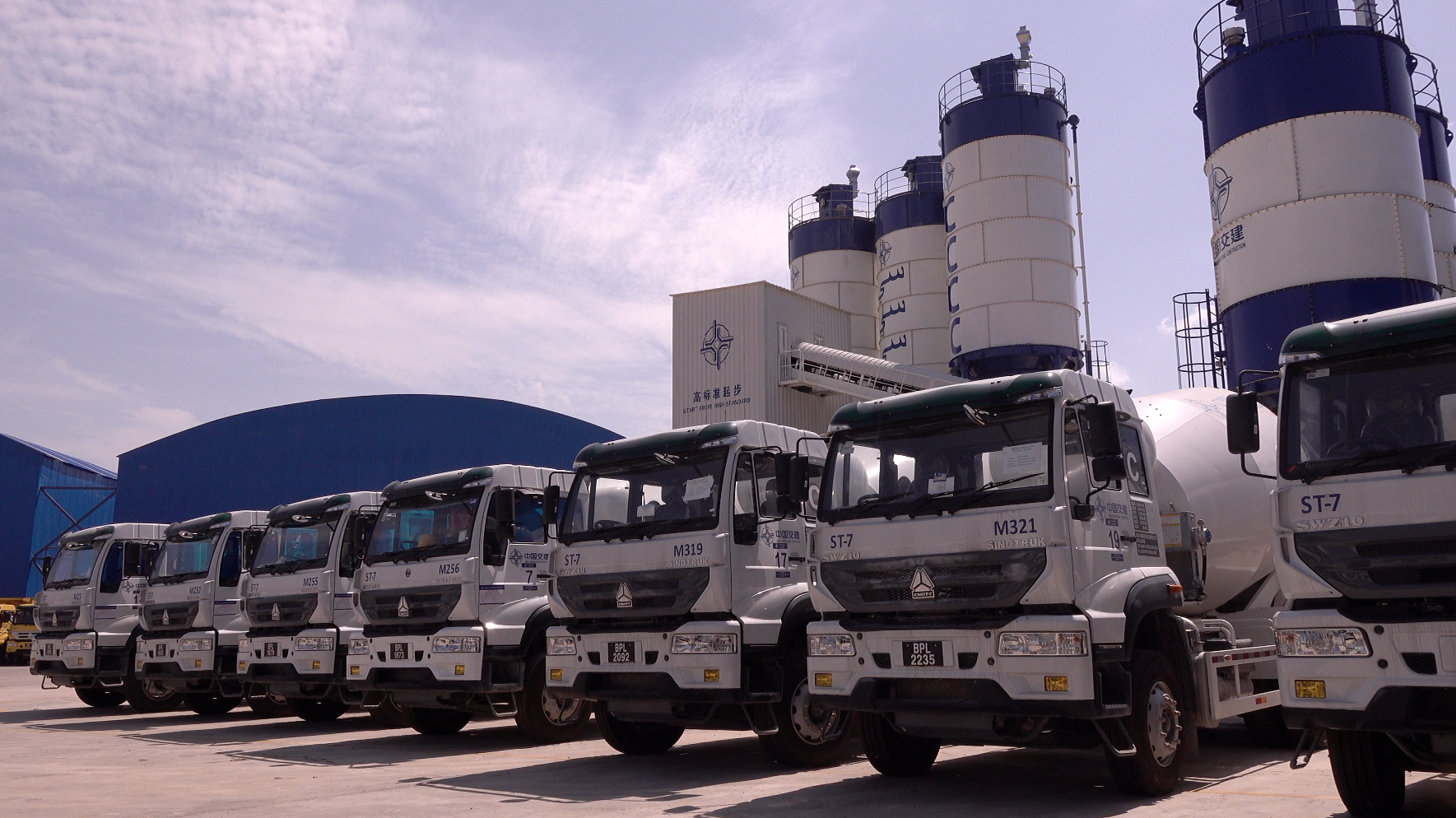02:23

Clusters of job hopefuls fill out forms, queue anxiously, and sit to discuss their applications with staff from China Communications Construction Company (CCCC) at a shopping mall in Kuantan, a city on Malaysia's east coast. They are looking for work on the East Coast Rail Link project, touted as the largest project in Southeast Asia under the Belt and Road Initiative (BRI).
"I studied engineering so I'm excited to follow my profession," says job applicant Muhd. Hazik Akmal Ishak. "I studied automotive engineering so this is quite connected to my field. I'd be excited to be able to work for this company."
Good jobs are hard to come by in Malaysia's underdeveloped eastern coast, and the ECRL project linking the capital to the eastern coastal region was seen as a way to spur economic growth and opportunities there.
But from the start, the political opposition complained that at a cost of more than 15 billion U.S. dollars it couldn't be justified economically. When that opposition coalition unexpectedly became the government in May 2018, they swiftly suspended, then canceled the project.

Work halted after Malaysia's May 2018 election. /CGTN Photo
Work halted after Malaysia's May 2018 election. /CGTN Photo
After months of hard negotiations, this April Prime Minister Mahathir Mohamad announced that his government had struck a new and better deal with CCCC that would allow the resurrection of the project.
Under the new deal, the route would be adjusted to scrap the longest tunnel. The cost would be slashed by nearly one third to 10.5 billion U.S. dollars. Local contractors would be guaranteed to get at least 40 percent of the civil works jobs, up from 30 percent previously. And once the line is completed, Malaysia's rail corporation, MRL, will form a partnership with CCCC to jointly operate and maintain the line, and crucially, to share any profits on an 80-20 basis… and any losses 50-50.
CCCC had already established so many base stations, conducted so much work and shipped in so much equipment that Malaysia would have had to pay about five billion U.S. dollars in compensation to scrap the deal. For little more than double that, Mahathir said, Malaysia would get a 640-km-long rail line.
Discussions on the final route alignment are continuing, but in the meantime, CCCC – or more precisely it's offshoot for this project, CCC-ECRL, has begun tunneling and bridge-building work.

Back to work after the nine-month hiatus. /CGTN Photo
Back to work after the nine-month hiatus. /CGTN Photo
At a site about 20 minutes outside Kuantan, around 100 meters of a 2.86-km-long tunnel has been bored into a hillside.
Heavy rains at this time of the year make the rock unstable and increase the risk of landslides. "The difficulty we face now is because of the monsoon season. It will slow us down. We are very careful every step of the way," says CCC-ECRL tunnel engineer, Lei A Li.
When the project was canceled last July, CCCC let go virtually all their Malaysian staff, a bitter blow to many. Some lucky ones were retained to tidy up loose ends, and even to prepare in case the project resumed. Others were transferred to other CCCC's projects.
"They gave me a call saying 'Cheah, I really need you to be back to actually tidy up and start moving again,'" says Malaysian management employee Cheah Hee Yuen. "I believe that it's still a good opportunity for me to carry on with this company and also this portfolio. And since it's a mega project for the country, I think it's good to be part of it."
Some local workers expressed their delight at being rehired, with one quoted in the local media as saying, "I didn't pause to listen to the terms and conditions. I just said 'Yes.' I really felt like hugging them."
At the job roadshow in the Kuantan Mall, there's a buzz of hope and expectation. Words have spread that Chinese companies such as the giant Alliance Steel operating not far from here offer wages well above the eastern coast norm and other benefits.

Malaysians are keen to work on the ECRL project. /CGTN Photo
Malaysians are keen to work on the ECRL project. /CGTN Photo
Ahmad Muslim Zailini says "by resuming this project again, I believe it's a good thing because they give the opportunity to the local people especially the graduates from university, increasing their skills, giving them the chance to gain experience."
Siti Nur Aishah Kefli has been working in quality control in the oil and gas industry. "I'm attracted to the project because it is a railway that has been planned by the government. It is a foreign company and that makes me interested in joining. I hope to get this job for my experience."
Along the route, there is also a buzz in the communities that feared their chances of getting a much-needed economic boost had died with the election of the new government.
The phrase "win-win" is often used when it comes to the BRI. But the deal to revive this rail project at a much-reduced cost, with better guarantees for local jobs and business, and sharing of any risk, does seem to live up the billing.